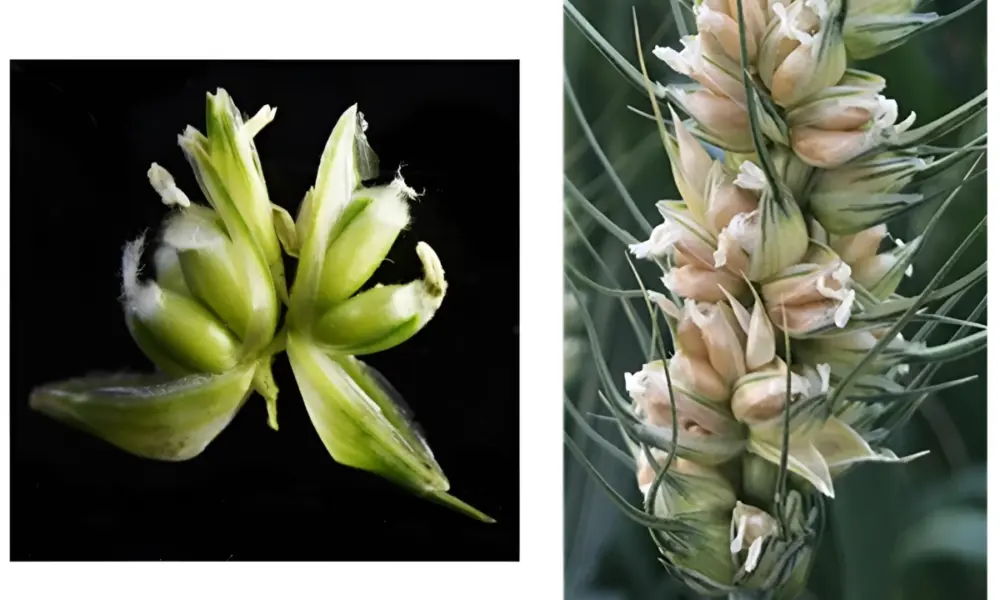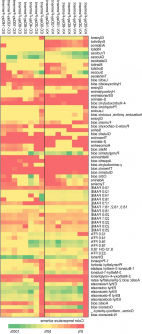A groundbreaking genetic discovery has the potential to triple grain yields from wheat plants, enabling farmers to produce significantly more food using the same land, water, and fertilizer. Scientists from the University of Maryland have identified the genetic mechanism behind a rare type of wheat known as MOV, or multi-ovary wheat, which can produce up to three grains from a single floret instead of the usual one.
Researchers extensively mapped the DNA of MOV wheat and compared it with that of conventional bread wheat. Their analysis revealed that a previously dormant gene, known as WUSCHEL-D1 (WUS-D1), is actively “switched on” in MOV wheat. This gene enhances the development of tissues that contribute to additional female flower parts, such as pistils and ovaries.
Implications for Wheat Production
The activation of WUS-D1 could allow breeders to develop new wheat varieties with improved grain production capabilities. Associate Professor Vijay Tiwari, co-author of the study, stated, “Pinpointing the genetic basis of this trait offers a path for breeders to incorporate it into new wheat varieties, potentially increasing the number of grains per spike and overall yield.”
The research findings, published in the Proceedings of the National Academy of Sciences, indicate that by utilizing a gene editing toolkit, scientists can focus on enhancing this trait to increase wheat yields further. This could significantly impact global food security, especially in regions facing challenges related to population growth and climate change.
Future of Wheat Breeding
As the world grapples with growing food demands, innovations like this could be crucial. With the ability to produce more grain from the same acreage, the agricultural sector may witness a transformation that promotes sustainability and efficiency.
The implications of this discovery extend beyond just increased yields; they also emphasize the importance of genetic research in agriculture. As the global population is projected to reach 9.7 billion by 2050, advancements in crop science will play a vital role in ensuring food supply meets demand.
The University of Maryland’s research not only sheds light on the genetic underpinnings of enhanced wheat production but also opens avenues for future studies aimed at increasing crop resilience and productivity.







